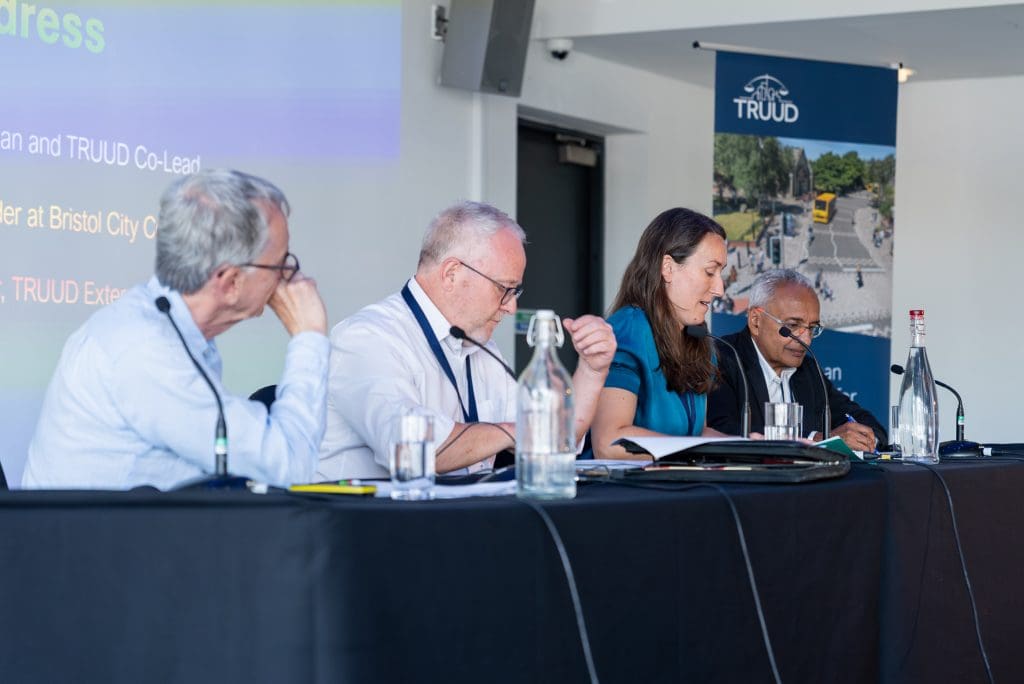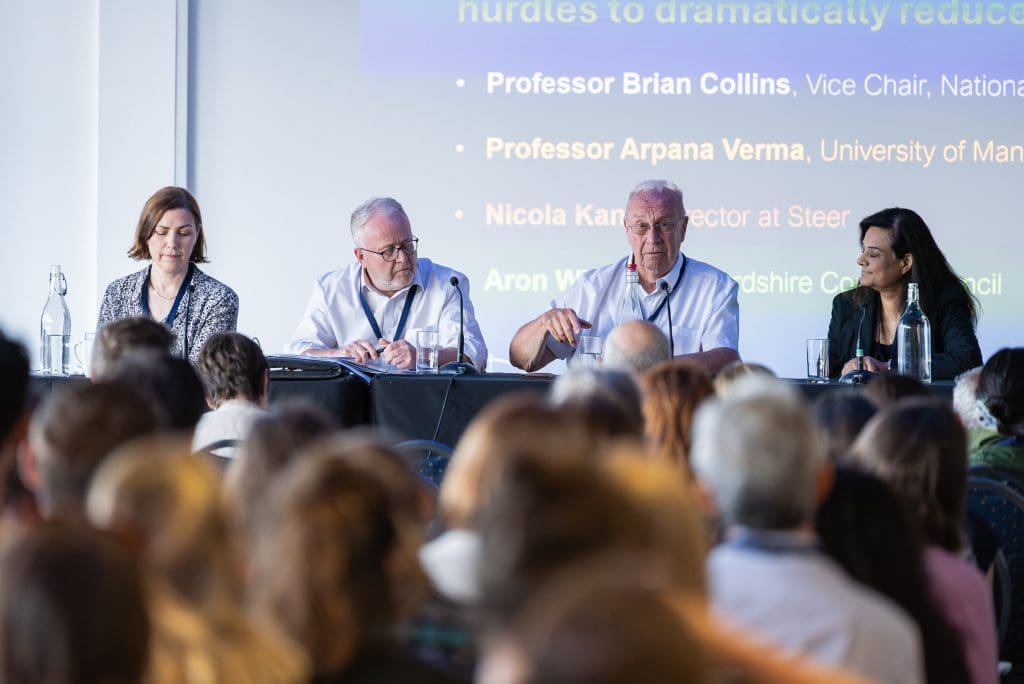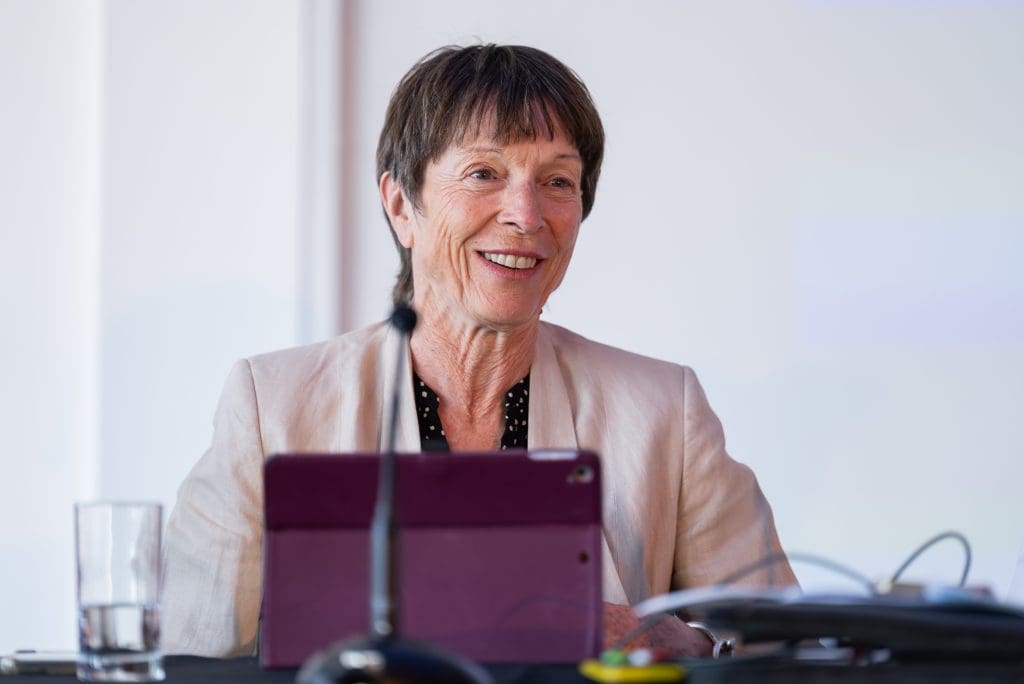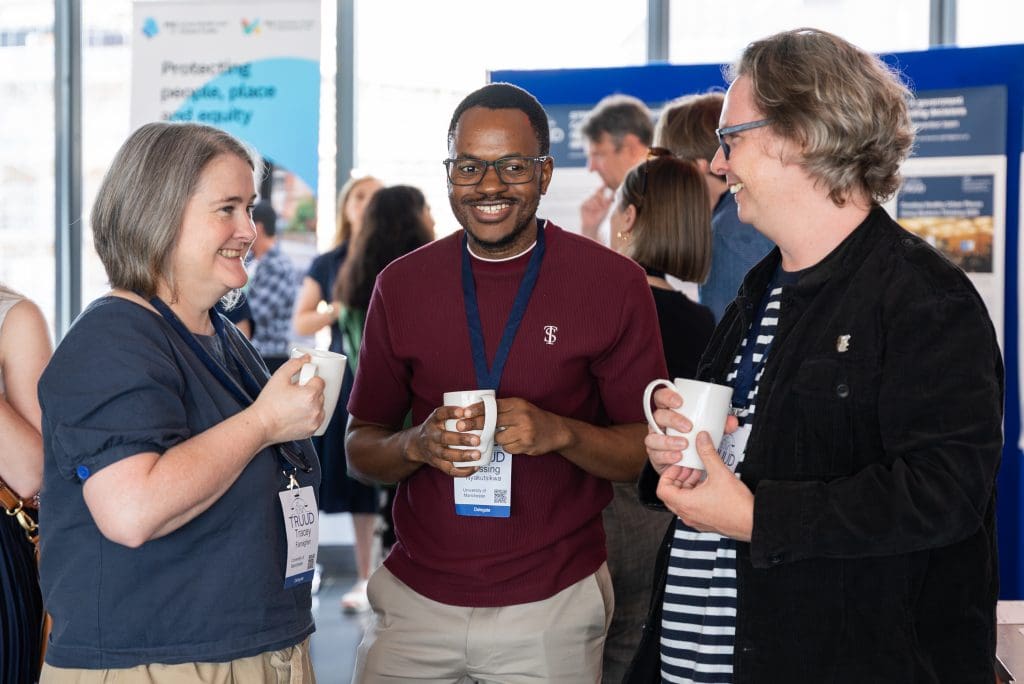Where next for research into healthier urban development decision-making? Expert panelists discuss priorities for healthier urban places
On 2nd July we hosted 150 public and private sector professionals and academics to mark the end of six years of research from TRUUD. The programme involved six universities, more than 40 researchers and hundreds of stakeholders, all of whom were interested in helping prevent diseases caused by unhealthy urban environments. Here our Co-Director Daniel Black reflects on the day’s discussion, highlighting the main points.
In addition to presenting our research findings, we wanted our day at Bristol’s MShed to also challenge industry and academic into exploring new territory. We were keen to avoid the usual parade of information transmission so focused our efforts on attracting forward-thinking senior decision-makers and thought leaders from the property and transport sectors, alongside innovators and expert in policy, legislation and community-led initiatives.
Chaired by Andrew Kelly, former Director of Bristol’s Festivals of Ideas, Future City and Economics, the event was kicked off by rousing keynotes on why this research is needed. Former physician, public health leader, and Co-Director of the research consortium, Professor Gabriel Scally, underlined emphatically the critical importance of upstream prevention, not least given that around two thirds of diseases cannot be addressed with drugs or healthcare intervention. He was followed by Cllr Heather Mack, Deputy Leader of Bristol City Council, who set out Bristol’s track record on health and sustainability over the last 10 years since it was European Green Capital in 2015. And finally, architect and Chair of the research group’s Advisory Board, Sunand Prasad OBE, made clear that we know what we need to do, but we lack understanding of how to do it, largely due to perverse incentives, unintended consequences, and siloed thinking. These keynotes set out the challenge for the following three panels on: property, transport, and innovation.
Appetite and capacity to change the property sector
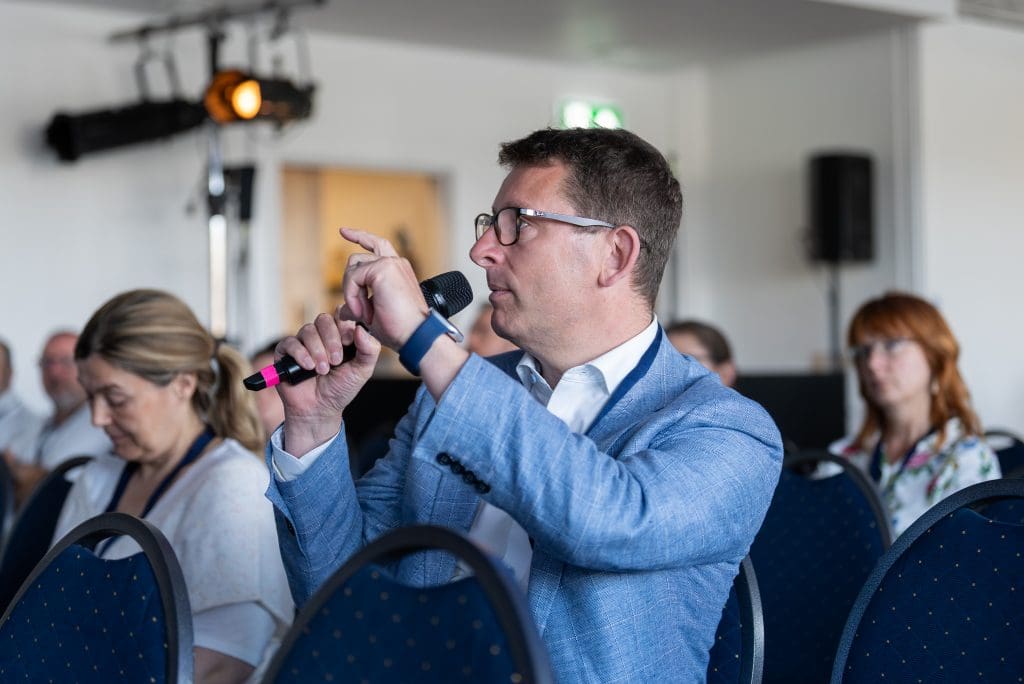 The property panel included: Chris Fletcher, Director of Direct Development at Grainger, the largest private rental landlord in the country; Richard Ford, Partner at Pinsent Masons and Co-Leader of their Garden Communities team; Alexandra Notay, former Director at Thriving Investments and Chair of Radix Big Tent Housing Commission; and Chris Taylor, CEO of Real Estate & Head of Private Markets at Federated Hermes. They set out clearly the complexity of the challenge, the appetite and capacity of industry, and the critical need for leadership from Government to enable the private sector to make healthy places. Two key points included firstly the fact that responsible investors are concerned about all risks, including health; and that Health Impact Assessments (HIA) could and should be made mandatory in planning policy.
The property panel included: Chris Fletcher, Director of Direct Development at Grainger, the largest private rental landlord in the country; Richard Ford, Partner at Pinsent Masons and Co-Leader of their Garden Communities team; Alexandra Notay, former Director at Thriving Investments and Chair of Radix Big Tent Housing Commission; and Chris Taylor, CEO of Real Estate & Head of Private Markets at Federated Hermes. They set out clearly the complexity of the challenge, the appetite and capacity of industry, and the critical need for leadership from Government to enable the private sector to make healthy places. Two key points included firstly the fact that responsible investors are concerned about all risks, including health; and that Health Impact Assessments (HIA) could and should be made mandatory in planning policy.
Experimental approaches to change transport approaches
The transport panel included: Brian Collins, Emeritus Professor of Engineering Policy at UCL, former Chief Scientific Advisor to the Department for Transport, and Vice-Chair of the National Preparedness Commission; Nicola Kane, former Strategic Director at Transport for Greater Manchester, Director at consultancy Steer, and now Chair of the Transport Planning Society; Arpana Verma, Professor of Public Health and Epidemiology at Manchester and lead for the research transport and public health theme; and Aron Wisdom, Programme Lead at Oxfordshire County Council and now expert in the politics of transport intervention. Key messages from this panel included: that cars cause so many deaths they should be considered a disease; that political bravery is essential, and though challenging can be supported by experimentation and rehearsal; and that, fundamentally, Treasury must start thinking long-term.
What role for innovation and disruption for meaningful change?
The new ideas panel included: Jane Davidson, Former Minister for Environment and Sustainability at the Welsh Government and architect of the now world-famous Future Generations Act; Monica Feria-Tinta, Barrister at Twenty Essex and activist expert on the rights of Nature; and Tom Chance, CEO of the Community Land Trust Network. Key messages included that: first and foremost, the natural world, on which our health depends, has not been central to all the discussions; that community-ownership is critical; and that we need validated pathways to delivery, not yet more recommendations. In hindsight, we should have had these speakers first, to set out the fundamental parameters of the mission as a challenge to industry.
Where next for healthier urban place research?
It was hugely gratifying to hear how valued the research was by so many senior mainstream experts: the demand for this kind of research was clearly made by all panellists. At the same time, we are aware that this research, even though a major programme, has only just scratched the surface of what are hugely complex ‘systems of systems’. That complexity can feel overwhelming, but a key message from the day was that that must not prevent action. OurThe research has at least shown that progress can be made in a number of areas: on Government valuation of urban-health externalities; on changing corporate mindsets; on health impact assessment and the law; on communicating the lived experience of those living in unhealthy places; on new ways of doing research that brings many different disciplines together with large numbers of stakeholder-practitioners. It’s often not easy, and often creates tensions, but with the right approach and mindset can lead to resolution and innovation.
The research consortium started out as one large team, funded by the UK Prevention Research Partnership, tasked with mapping and understanding the UK’s urban development systems in order to identify where and how best to intervene.
Our Impact Report, launched at the event details these interventions, the teams behind them and where we’re seeing early impact. Through two years of data collection and analysis we identified 50 areas of intervention, from which we selected seven to develop and test. Each has achieved clear impacts in an integrated range of areas: new forms of Government appraisal; changes in ‘pro-health intention’; changes in real estate investment strategy; wide-spread take-up of training on health impact assessment; new metrics used in city-region transport planning in Greater Manchester; and improved spatial planning in Bristol and beyond. Each of these newly integrated teams are now developing their own bids to take forward these new areas of research, growing and proliferating into the research challenge area.
Watch our summary film for a round-up of the day:


